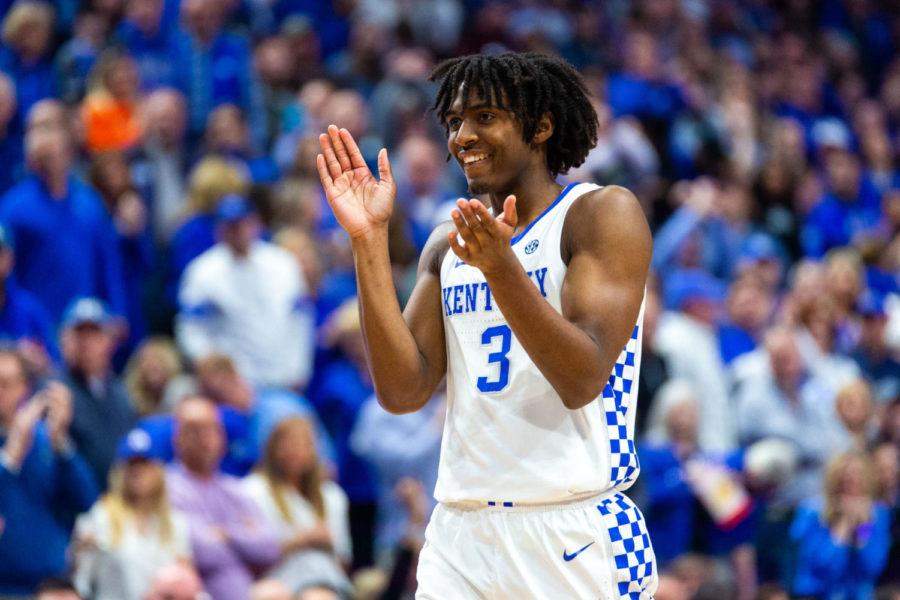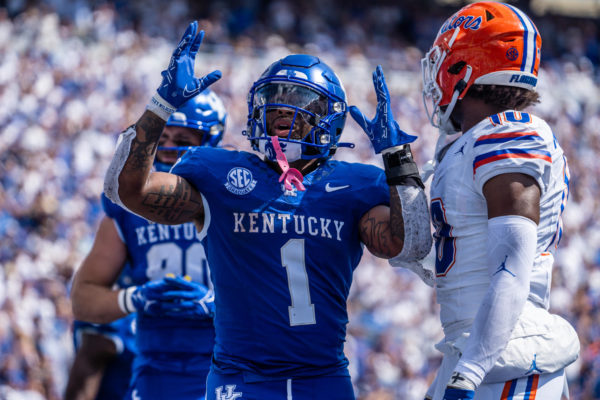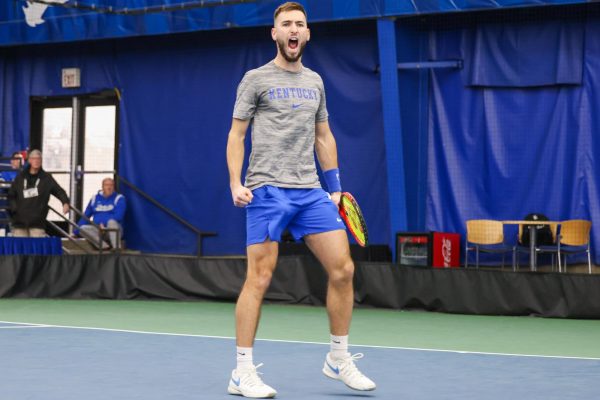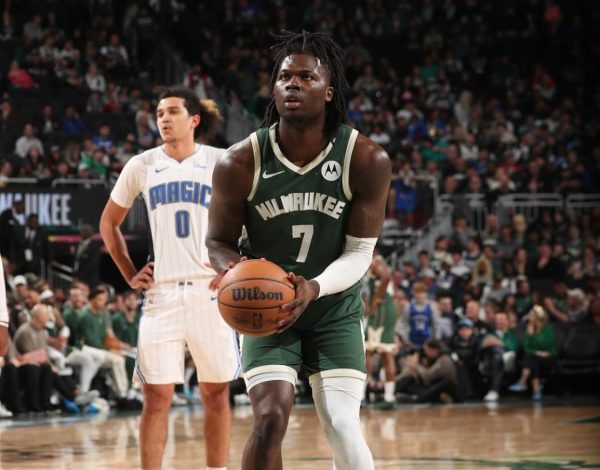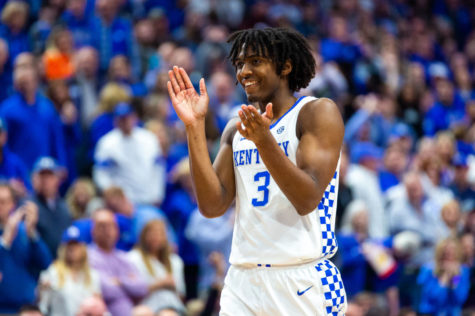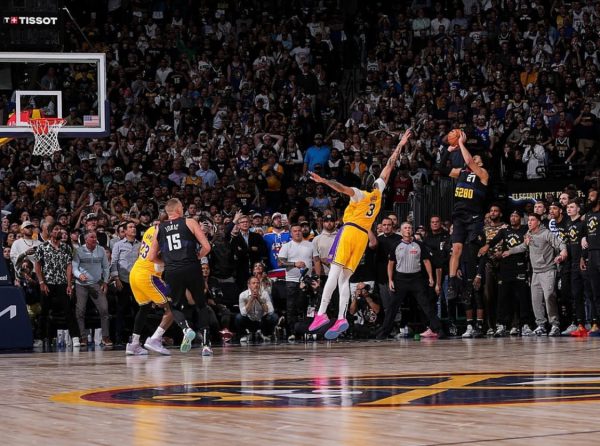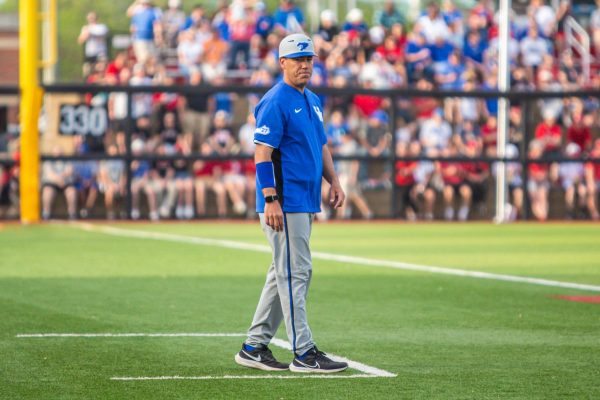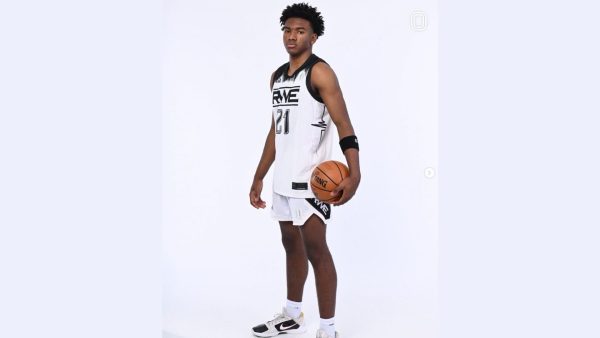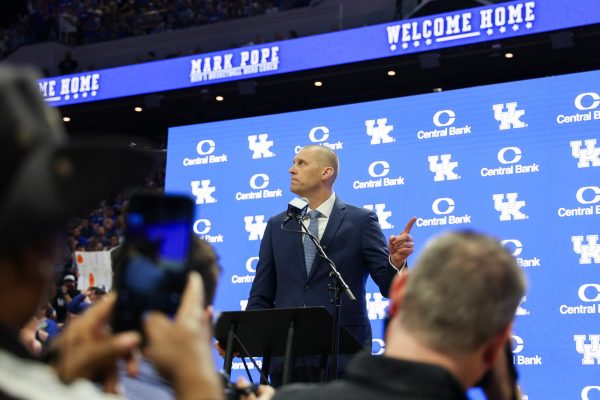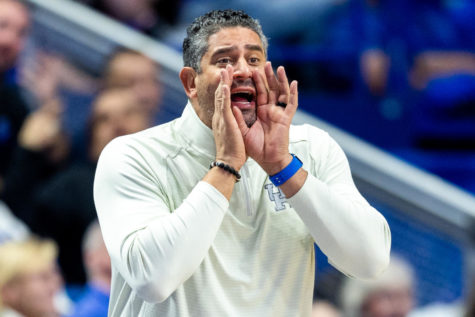Controversial act to discuss ‘race, literacy and masculinity’
October 20, 2010
By Hope Smith
An educated, accomplished, young black man will be throwing around the “N-word” Thursday night in the Black Box Theater. But he doesn’t want to stir up any conflict, he just wants to provoke an educated debate.
Vershawn Ashanti Young, author of “Your Average Nigga: Performing Race, Literacy and Masculinity,” longtime educator and new UK faculty member, will put on a solo performance of his thoughts on gender, race and society.
In “Your Average Nigga,” Young argues that forcing African-American students to give up their Black English Vernacular to pursue the practice of speaking Standard English does not help them succeed as some might think.
Language is ever-evolving, and if parts of the Black English Vernacular can be widely understood as a means of communication then there shouldn’t be such a strong push to change it, Young said.
“When people see the word ‘nigga’ in the title, it sparks a controversy,” Young said. “Some people shy away, others are more pulled towards it. People seem to be either really interested in race or they want to ignore it… My book is about the title and the subject.”
Young said his book started as his dissertation, and after three years of work, turned into something more.
Every chapter is written through experience, and interwoven within each one are thoughts on what it means to be a black male and keep your heritage and your masculinity without changing yourself completely for society.
The idea was born when Young found himself in a classroom with another black male who said had a more “ghetto” way of speaking, and he started thinking about language and how this particular way of speaking is commonly looked down upon and why.
“Black English is fully compatible with Standard English…We often exaggerate the differences,” Young said. “Teachers need to tell black students the way they speak is fully communicative and start teaching them how to negotiate prejudice.”
Young related this prejudice to the popular reactions toward the way that people from Appalachia speak. Though some people from that region may say things a little differently, you can still understand them, and this doesn’t make their way of speaking wrong, Young said. This is an idea he plans to study more in the future.
He spent his last eight years teaching at the University of Iowa. He also taught high school students and served as an elementary school principal before landing at UK this summer. Young is an English professor who is currently teaching freshman and graduate students.
He said he “absolutely loves UK” and is looking forward to becoming more involved around campus in the performance, racial, cultural and gender arenas.
His performance will have only one performer – Young – who will play all the characters from his book and navigate the audience through his life and everything his experiences have taught him and driven him to ponder.
“On the entertainment side, people can expect to see poetry, dance, different characters and music,” Young said. “But they can also expect a very intellectual conversation about language, race and gender.”
The presentation, which is sponsored by UK’s African-American Studies and Research Program and the Martin Luther King Jr. Cultural Center, is the second of four annual events in the Carter G. Woodson lecture series.
Dr. Sonja Feist-Price, AASRP director, said the goal was to provide an audience with a place to see new talent and exciting work.
“We try to put on not only thought-provoking presentations, but also expand the knowledge base of our students, faculty and staff,” Feist-Price said. “This is a platform that allows us to showcase the knowledge of our faculty.”
Young’s performance-lecture will be at 4:30 p.m. on Thursday, Oct. 21, in the Lucille C. Little Black Box Theater, room 102 of the Fine Arts Building.
He will be available after the show to answer questions and sign copies of his book.
The event is free and open to the public, and refreshments will be provided.
“If you want to go deeper than the performance, buy the book,” Young said. “I know the title is in your face, but it doesn’t hurt.”









































